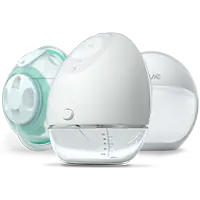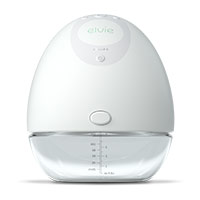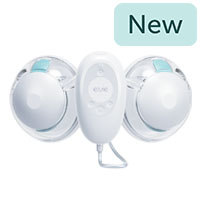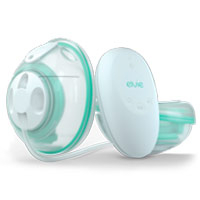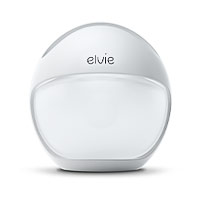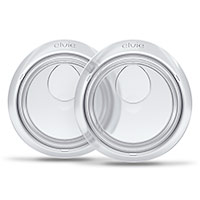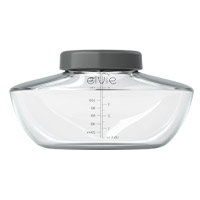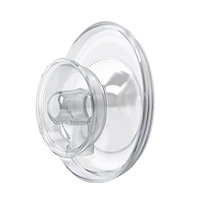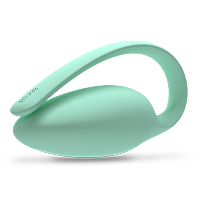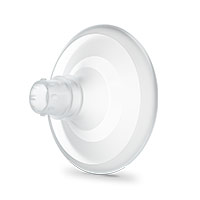Whether you’re breastfeeding, pumping, or a combination of the two, sore and cracked nipples are an unfortunately common problem for new moms, with 79% of mothers in a recent survey saying they suffered pain during the initial weeks of breastfeeding. In the early days of motherhood, a little discomfort is normal as your body gets used to its brand new role. Over your baby’s first few days, your body goes from producing small amounts of thick colostrum, to larger amounts of more mature, liquid breastmilk. When this happens more blood flows to your breasts and they feel heavier and more tender as you will initially have more milk than you need for your baby. This is totally normal, however, you shouldn't have to suffer alone or put up with persistent pain and there are a host of simple preventative actions and natural alternatives you can try.
Breast Engorgement
Breast engorgement is a common cause of sore and painful breasts and can occur whether you are breastfeeding or expressing. When your breasts are engorged, or too full of milk, this not only causes tenderness of the breasts, but this can also stretch the nipples flat, causing them to split and crack.
This is a familiar situation for new moms, as it can take a while for your milk production to match your babies needs, but eventually this should self-regulate. However, it’s important to monitor this, as if breasts are too full for an extended period of time it can lead to mastitis.
One of the best ways to combat breast engorgement is to massage the breast using one or two fingers. A little gentle pressure around the nipple base can help relieve the pressure and move some of the swelling away from the nipple.
The NHS also suggests applying chilled cabbage leaves to your breasts after feeding or expressing as this can reduce the pain and swelling. If your breast are leaking you could also try applying warm flannels before expressing.
If you are using breast pumps, it could be that the breast shields are the wrong size for you and therefore your breasts are not fully emptying when expressing. This can take a little trial and error, but it’s important to make sure you have the right size breast shield for you, as ill fitting breast shields can also lead to blocked milk ducts, resulting in mastitis.
Hygiene
Good hygiene practices are part and parcel of being a new mom, but it’s important your treat yourself with the same love and care you treat your baby. When it comes to breastfeeding and and breast pumping, keeping your breasts, breast pumps and nursing pads clean can dramatically reduce the risk of sore nipples, mastitis and thrush. You should also remember to regularly change your nursing pads and nursing bras as they can foster germs that can cause cause infection.
Make sure to wash your hands, breasts and nipples regularly - although Dr Meredith Shur, of the American College of Obstetricians, advises against using soap on your breasts. This can irritate the skin whilst also removing the natural oils that your body is producing to combat the damage to your nipples.
If breast pumping, its important to make sure all parts of your breast pump are kept clean. You should check the care instructions for your specific breast pump, and remember to only wash the washable pieces, avoiding the hubs and any electronic parts. Generally its advisable to rinse your pumping equipment with cool water after use and then wash all parts with warm water and dishwashing soap, before rinsing and leaving to air dry. Once a day you should sterilize your breast pump, and once again be sure to check what your specific pump’s care instructions are. For Elvie Pump we recommend sterilizing the washable components for 5 minutes in boiling water once a day, but you can use microwave, steam or cold water sterilizing methods too if preferred.
At Home Relief
Not only is breast milk full of incredible nutrients for your baby, but it can also help ease the pain of sore and cracked nipples. The American Pregnancy Association advises hand expressing a little breast milk and gently rubbing it into the nipples after feeding or pumping.
Other natural remedies include coconut oil to help deeply moisturize cracked nipples and using lanolin oil to help prevent scabbing and to soothe pain in between feeds. Chamomile tea is another great source of relief for sore nipples, thanks to its anti-inflammatory properties. You can ingest it as a tea or simply apply the tea bags directly to the infected area. Bathing your breasts in a saline solution is also an easy way to reduce the risk of developing an infection.
When To Seek Medical Help
Whilst sore nipples are generally nothing to be too concerned about, there are some occasions where seeking a professional medical opinion is advisable - if only for your peace of mind.
If you are having persistent pain and are beginning to feel generally under the weather, you could have developed mastitis. Mastitis is inflammation of the breast, causing not only a huge amount of discomfort but other flu like symptoms that can leave you feeling unwell and drained. The NHS website states that although mastitis starts off as ‘non-infective’, if left it can lead to a full infection which will need to be treated with antibiotics, so it’s important to speak to your health visitor if you think this could be the case.
Another cause of persistent sore nipples could be thrush. Signs of thrush include red or pink shiny skin that usually itches, and may flake or peel, says pediatrician Audrey Naylor, MD. If you have thrush you can still continue breastfeeding, but it is important to seek medical advice as both you and your baby will need to be treated so you don’t continue to pass the infection on to one another.
Even if you don’t think you are suffering from mastitis or thrush, always be open to asking for help if you are experiencing discomfort when feeding or pumping. Stress and isolation will only perpetuate any problems you may be having, so reach out to your doctor or lactation consultant for further support. whenever you need it.
To learn more about breast pumping with Elvie Pump click here.
Helplines
UK: NHS Pregnancy and baby guide: Breastfeeding help and support

